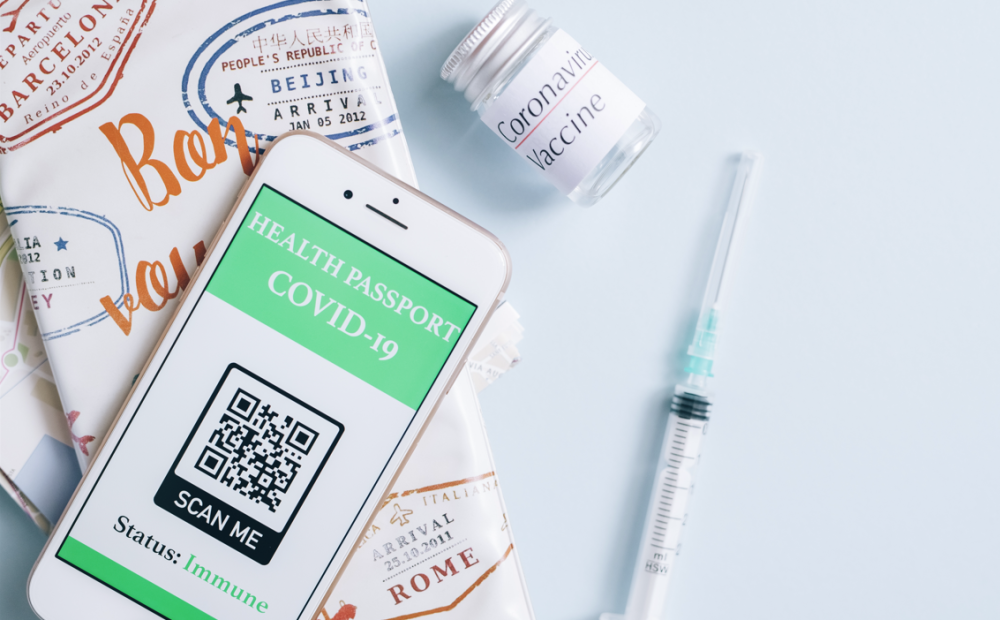
Your biometric-linked alarm wakes you up when it senses the ideal point in your circadian rhythm. You order your morning coffee with a swipe of your finger and pick it up on your way to the airport. You pass through security which also takes your temperature while blue light sanitizes your luggage. At the gate, you show the virtual attendant your digital boarding pass and vaccination passport. You are looking forward to the inflight meal, which has already been adjusted for your dietary preferences – synced across your digital identity.
Sounds convenient, right? While we may be a few years away from a fully automated existence, you can expect some parts of travel to change in a post-pandemic reality.
For instance, soon instead of simply flashing the passport from your country of origin at customs, border protection agents may also require a digital health passport before entry. In some parts of the world, including China and the EU, COVID-19 vaccine passports and digital COVID-19 certificates are already in use.
Major technology companies and health organizations, including Salesforce and The World Health Organization, are pushing not just for digital vaccine certificates but also better global standards around access to health information.
Here’s how that might look in practical terms and what digital health passports could mean for individual privacy:
Why the future of health is digital
Believe it or not, vaccine certifications aren’t a new concept. In fact, as Donna Medeiros, Senior Director Analyst, Gartner explains, “The World Health Organization first established vaccine certification standards for yellow fever in 1933 and has issued paper medical passports in some form ever since. Now, organizations are forging ahead with digital solutions to reopen economies and travel routes…”
The idea is that travellers would use a physical pass or digital certificate proving they have been fully vaccinated. Some proponents are also pushing for more universal health passports that show whether a citizen has recently tested negative for COVID-19 or displays antibodies from a previous infection based on recent blood work. Whether digital or analog, the pass would have a scannable QR code, making it possible for everyone in the travel industry from airlines to hospitality providers, to verify a person’s current health status.
And while vaccine passports are conceptually simple, it’s a harmonized global standard that’s presently missing.
Privacy, digital identity and vaccine passports
The mere idea of vaccine passports raises concerns for some privacy advocates. Some are worried passes may encourage discrimination against the unvaccinated. After all, only 2.3% of the world’s population in low-income countries have had the opportunity to receive their first dose of the vaccine.
Critics like Open Rights Group warn that these types of digital health certifications could also lead to invasions of personal privacy or security breaches if not orchestrated carefully.
Annet Steenbergen, Chair of the IATA Passenger Facilitation working group and data privacy advocate, agrees, telling The Future Identity that, “health credentials must, and can, respect data privacy and data protection, by, ‘sharing only the bare minimum data, [and being] self-sovereign from a trusted, preferably government, source.’”
Then again, there are the local bars, restaurants and family-owned businesses that have been hit hardest as the global travel market has contracted. To them, the introduction of a COVID-19 vaccination tracking system would mark a safe and welcomed return to tourism. With the ability to travel freely without worrying about endangering your fellow man or facilitating another outbreak, these health certifications could pump some much-needed capital back into the vulnerable global travel industry.
In short, while you may still have to manually set your alarm and make your coffee for now. Changes are on the way – many of them digital. Electronic health credentials may only be the first domino to fall.
